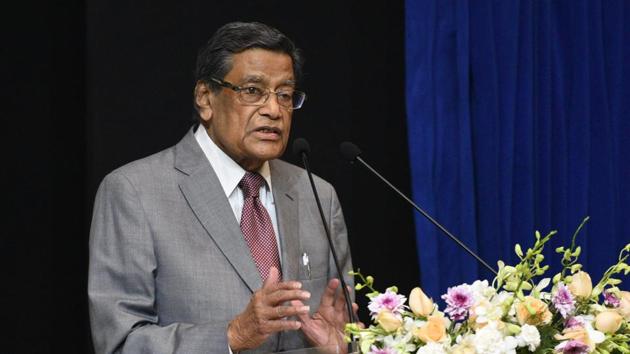‘Media trial causing great damage to judiciary’: Attorney General KK Venugopal
Venugopal, who was appearing in his personal capacity in the 2009 contempt of court case against lawyer Prashant Bhushan, said that the manner in which court news is being reported by media has serious implications.
Electronic and print media are attempting to influence the outcome of pending cases by their reportage and such media trial is doing great damage to the judiciary, Attorney General KK Venugopal told the Supreme Court on Tuesday requesting the court to examine the issue in greater detail and devise a solution to the problem.

Venugopal, who was appearing in his personal capacity in the 2009 contempt of court case against lawyer Prashant Bhushan, said that the manner in which court news is being reported by media has serious implications.
“Today electronic and print media are freely commenting on pending cases in an attempt to influence judges and public perception. This is doing great damage to the institution,” he said.
He gave examples of how television (TV) channels report bail matters and articles are written immediately before hearing in Supreme Court, specifically citing the example of the Rafale case.
“Today, when I watch TV, I see them playing conversations stated to be made by the accused. This can be very damaging to the bail plea of the accused. Another example is of Rafale in which immediately before the hearing, an article is published commenting on the case with details of documents. All this amounts to contempt of court,” he said. He requested the court to examine and address the problem.
Also read: India, China bet on dialogue to resolve border row in eastern Ladakh
Senior counsel Rajeev Dhavan, who was appearing on behalf of Bhushan, opposed the AG saying the case before the court is limited to contempt of court and issue regarding commenting on sub-judice (pending) cases has already been settled by the apex court in previous judgments. He, therefore, said that the issue should not be re-examined in the present case.
The contempt case against Bhushan itself has its genesis in an interview given by Prashant Bhushan to Tehelka magazine in which he claimed that half of the previous 16 Chief Justices of India were corrupt. Senior advocate Harish Salve had brought Bhushan’s statement to the notice of the court based on which the top court initiated contempt of court case against the activist lawyer in November 2009.
The case was listed by the top court before a bench headed by Justice Arun Mishra on July 24, 2020, more than eight years after it was last heard.
Bhushan refused to apologise for his statement but offered an explanation to the court on his controversial remark. The apex court, on August 10, rejected Bhushan’s explanation and decided to proceed with the case and hear it in detail.
When the case was heard on August 17, the court said that certain larger legal issues need to be settled, including whether allegations of corruption against judges can be made by way of public statements and the procedure to be adopted when such allegations are raised against the conduct of a sitting judge.
On August 25, Bhushan’s counsel requested that the case should be placed before a Constitution bench since it involves substantial legal issues.
The three-judge bench, which also comprised justices BR Gavai and Krishna Murari, could not, however, take the case to finality because justice Mishra retired from office on September 2.
The matter then came to be listed before a new bench headed by Justice AM Khanwilkar. When it was heard on September 10, the court appointed Venugopal as Amicus Curiae taking into account the importance of the issues involved in the case.
The parties to the case will now sit with the AG and frame the issues to be considered by the court. The case is likely to be heard next on November 4.
The top court had, on August 31, imposed a fine of Rs. 1 on Bhushan in another contempt of court case initiated against him for his tweets criticising the Supreme Court and current CJI, SA Bobde. Bhushan had refused to tender an apology in that case too despite opportunities afforded by the court.






